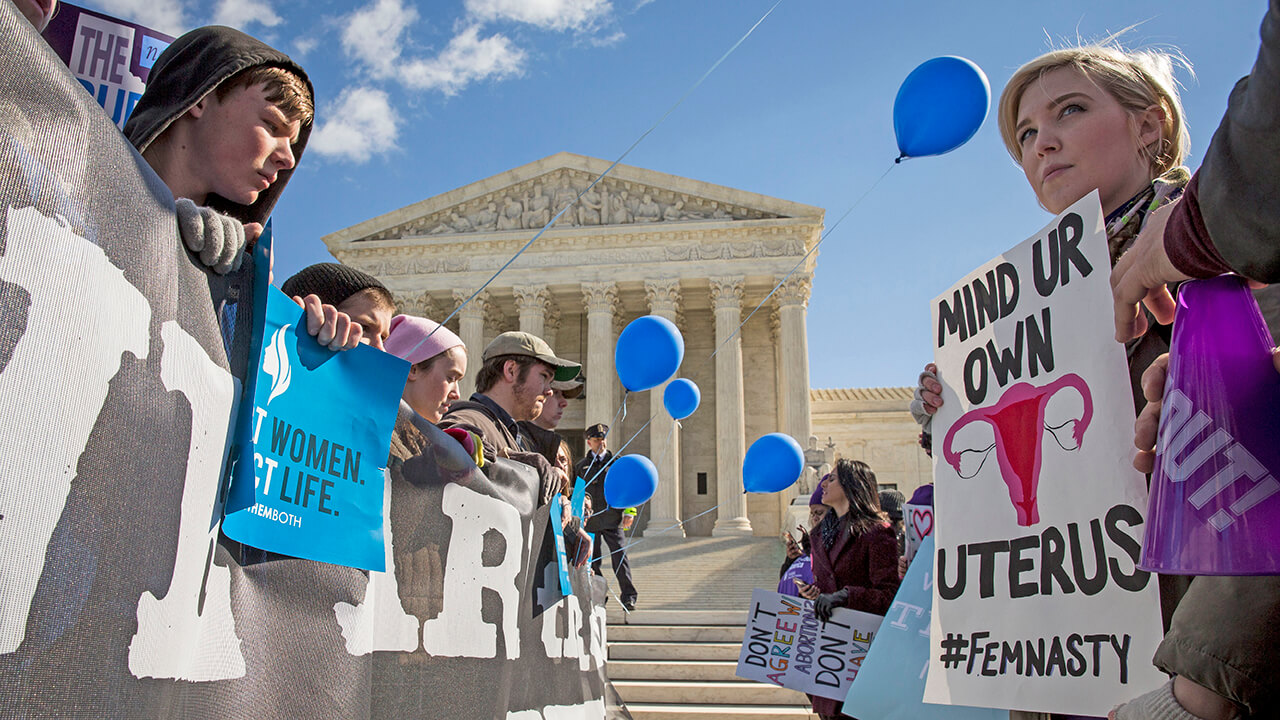The United States (US) on Thursday joined Egypt, Brazil, Indonesia, Hungary, and Uganda to co-sponsor an international anti-abortion pact, known as the ‘Geneva Consensus Declaration’. Intended to “promote women’s health and strengthening the family”, the non-binding declaration is a rebuke of the UN Human Rights Council’s (UNHRC) classification of access to abortion as a universal human right. The move is a part of the Trump administration’s campaign to shift US (foreign and domestic) policy in a more socially conservative direction, despite the risk of alienating its traditional western allies.
The signatories include multiple conservative and authoritarian governments, like Belarus, Poland, Saudi Arabia, Sudan, Iraq, Libya, and the UAE, none of whom have a great record regarding their treatment of women. For instance, Poland’s constitutional court approved a near-total ban on abortion on Thursday, and security forces in Belarus are currently working to suppress a women-led protest movement against the government.
At the virtual signing ceremony, which was co-hosted by US Secretary of State Mike Pompeo and Health and Human Services (HHS) Secretary Alex Azar, the officials heralded the pact as an important step forward to preserve the “dignity of human life everywhere and always”, and stated that the “unprecedented defense of unborn”, both in the US and abroad, had been a crowning achievement of US President Donald Trump. It’s worth noting that this comes just a month after it was reported that immigrants held in US detention centers were being subjected to hysterectomies without their consent.
Regardless of the blatant contradictions characterizing the US’ manipulation of global norms, values, and institutions, taking an anti-abortion stance (from a foreign policy perspective) is not new to the country, which has over the years implemented the “Mexico City Policy” that conditions US funding for global family planning on a commitment from NGOs that they will not promote or perform abortions using funds from any source. Democratic presidents, including Barack Obama, have issued memorandums through the years that rescinded the rule, but Republican presidents have reinstated it.
Far-right evangelical Christians form an important part of President Donald Trump’s voter base, and his administration has sought to put their causes of restricting abortion and preserving gun ownership at the top of his policy agenda. On May 18 of this year, John Barsa, the acting administrator of the United States Agency for International Development (USAID), urged the UN to remove all references to sexual and reproductive health from its COVID-19 Global Humanitarian Response Plan (HRP), emphasizing that classification of access to abortion as an “essential service” risked undermining a united response to the global crisis.
In April 2019, the US threatened to veto a UN Security Council resolution on ending wartime rape if references to reproductive health were not removed. Currently, the Trump administration is rushing forward to confirm conservative judge Amy Coney Barrett for a lifetime appointment on the US Supreme Court, which has raised fears of increased restrictions on women’s sexual and reproductive rights.
Thursday’s declaration also puts emphasis on “strengthening the family”, which it characterizes as a “natural and fundamental group unit of society”. This kind of language has been used to restrict LGBTQ rights in nations like Egypt, Hungary, and Uganda (all co-sponsors of the pact) whose governments have systematically targeted the LGBTQ community. This also stands in stark contrast to Wednesday’s news that Pope Francis had expressed support for laws that would protect same-sex unions.
Critics have said that the pact will not only harm LGBTQ people but also erode the global consensus about the need to protect the sexual and reproductive health and rights of women and girls.
US Joins Global Anti-Abortion Pact, Signaling Trump’s Commitment to Conservative Base
Speaking at the virtual signing ceremony, US Secretary of State Mike Pompeo said the declaration “defends the unborn and reiterates the vital importance of the family.”
October 24, 2020

SOURCE: PEW RESEARCH CENTER
